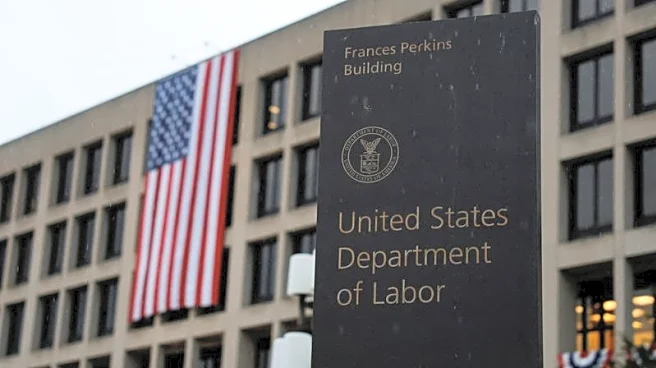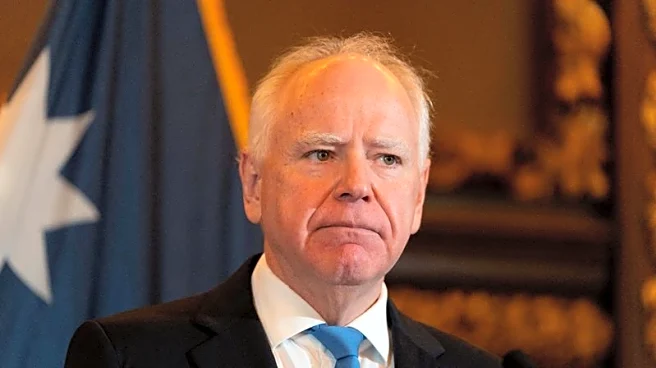What's Happening?
President Trump has renewed his efforts to terminate New York City's congestion pricing program, urging Transportation Secretary Sean Duffy to review and potentially end the initiative. The program, which
charges drivers a fee for entering Manhattan's central business district, has been contested in court, with federal authorities demanding its halt. The congestion pricing, initially proposed in 2007, aims to reduce traffic and pollution while funding public transportation improvements. Despite federal opposition, New York officials, including Governor Kathy Hochul, continue to support the program, citing its importance for infrastructure funding.
Why It's Important?
The conflict over New York City's congestion pricing program has broader implications for urban traffic management strategies across the United States. As cities seek to balance environmental concerns with economic recovery, the outcome of this legal battle could influence similar initiatives nationwide. President Trump's intervention highlights federal-state tensions over local autonomy and regulatory priorities, potentially affecting future infrastructure funding and policy decisions.
What's Next?
The deadline for New York to deactivate the congestion pricing toll has been extended, allowing more time for discussions between city, state, and federal officials. Legal challenges initiated by the Metropolitan Transportation Authority and other state agencies are ongoing, with court decisions expected to determine the program's future. If federal authorities enforce their directives and state leaders resist, the matter could escalate to higher courts.
Beyond the Headlines
The debate over congestion pricing touches on ethical and economic dimensions, such as the fairness of tolls on commuters and the environmental benefits of reduced traffic. It also raises questions about the role of federal intervention in state-level initiatives and the long-term impact on urban planning and sustainability efforts.










